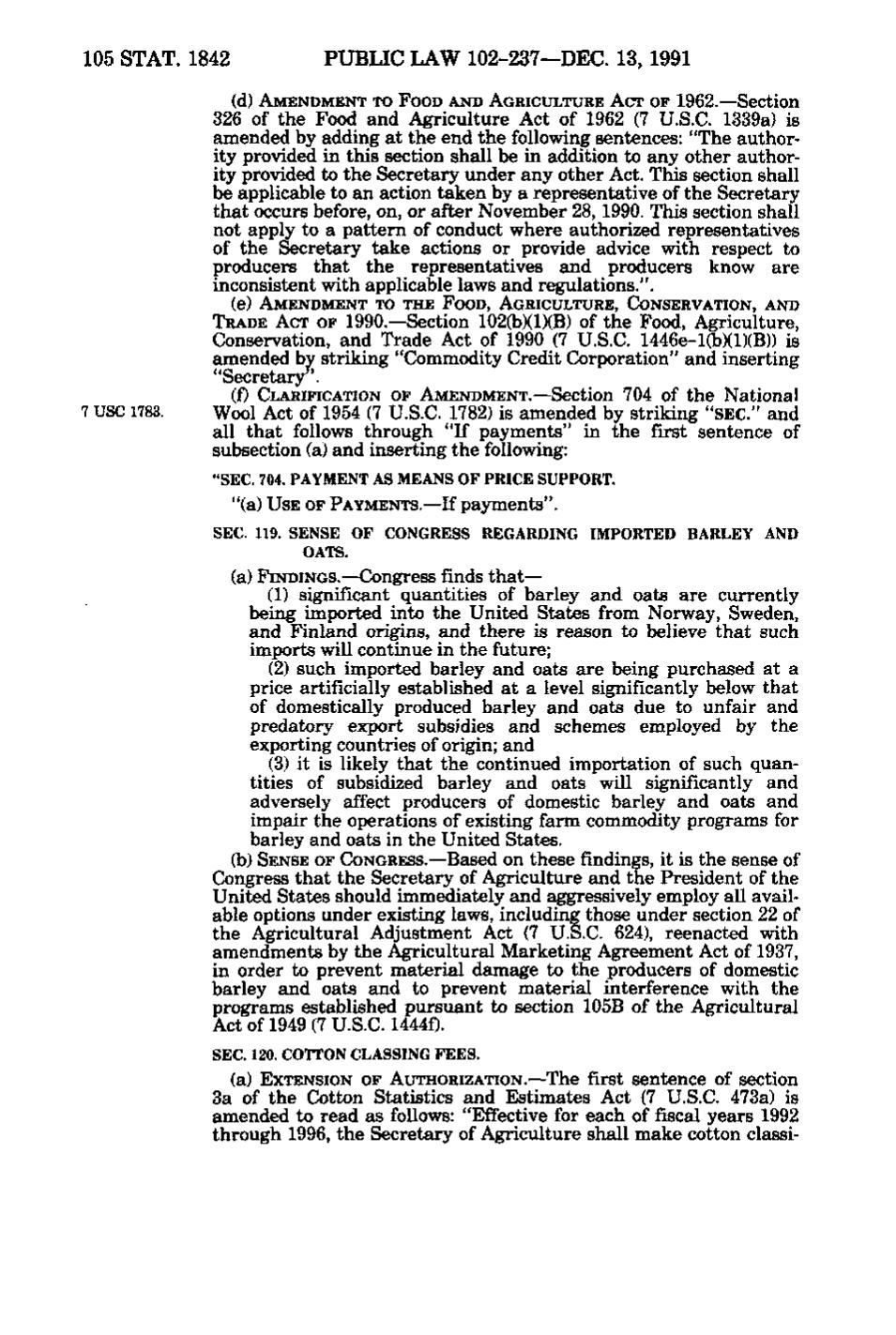105 STAT. 1842 PUBLIC LAW 102-237—DEC. 13, 1991 (d) AMENDMENT TO FOOD AND AGRICULTURE ACT OF 1962.— Section 326 of the Food and Agriculture Act of 1962 (7 U.S.C. 1339a) is amended by adding at the end the following sentences: "The authority provided in this section shall be in addition to any other authority provided to the Secretary under any other Act, This section shall be applicable to an action taken by a representative of the Secretary that occurs before, on, or after November 28, 1990. This section shall not apply to a pattern of conduct where authorized representatives of the Secretary take actions or provide advice with respect to producers that the representatives and producers know are inconsistent with applicable laws and regulations.". (e) AMENDMENT TO THE FOOD, AGRICULTURE, CONSERVATION, AND TRADE ACT OF 1990.— Section 102a))(l)(B) of the Food, Agriculture, Conservation, and Trade Act of 1990 (7 U.S.C. 1446e-l(b)(l)(B)) is amended by striking "Commodity Credit Corporation" and inserting "Secretary'^'. (f) CLARIFICATION OF AMENDMENT.— Section 704 of the National 7 USC 1783. Wool Act of 1954 (7 U.S.C. 1782) is amended by striking "SEC." and all that follows through "If payments" in the first sentence of subsection (a) and inserting the following: "SEC. 704. PAYMENT AS MEANS OF PRICE SUPPORT. "(a) USE OF PAYMENTS. — I f payments". SEC. 119. SENSE OF CONGRESS REGARDING IMPORTED BARLEY AND OATS. (a) FINDINGS.—Congress finds that— (1) significant quantities of barley and oats are currently being imported into the United States from Norway, Sweden, and Finland origins, and there is reason to believe that such imports will continue in the future; (2) such imported barley and oats are being purchased at a price artificially established at a level significantly below that of domestically produced barley and oats due to unfair and predatory export subsidies and schemes employed by the exporting countries of origin; and (3) it is likely that the continued importation of such quantities of subsidized barley and oats will significantly and adversely affect producers of domestic barley and oats and impair the operations of existing farm commodity programs for barley and oats in the United States. (b) SENSE OF CONGRESS. — Based on these findings, it is the sense of Congress that the Secretary of Agriculture and the President of the United States should immediately and aggressively employ all available options under existing laws, including those under section 22 of the Agricultural Adjustment Act (7 U.S.C. 624), reenacted with amendments by the Agricultural Marketing Agreement Act of 1937, in order to prevent material damage to the producers of domestic barley and oats and to prevent material interference with the programs established pursuant to section 105B of the Agricultural Act of 1949 (7 U.S.C. 1444f). SEC. 120. COTTON CLASSING FEES. (a) EXTENSION OF AUTHORIZATION. — The first sentence of section 3a of the Cotton Statistics and Estimates Act (7 U.S.C. 473a) is amended to read as follows: "Effective for each of fiscal years 1992 through 1996, the Secretary of Agriculture shall make cotton classi-
�
